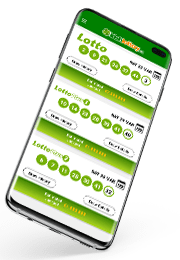Irish Lottery Scams
It is not possible to win a lottery without entering it. Anybody who is told they have won a prize in a game they didn’t play should not reply to messages and, most importantly, should NEVER send money or personal information to someone who has contacted them unexpectedly. Unfortunately, fraudsters continue to operate and come up with new ways to try and deceive members of the public, so it is important to always remain vigilant.
How scams work
Lottery scams can come in a variety of different forms, whether it is email, post, phone, text or even social media. The most common trick is to tell the recipient they have won a prize, with the fraudster claiming to represent a lottery organisation. The scammer will then attempt to extract money or private details, perhaps by requesting an ‘advance fee’ or an ‘administration charge’ before their winnings can be released. A legitimate lottery would never ask a winner to pay a fee before they can receive their prize, while taxes on lottery winnings around the world are paid to the relevant government and not the lottery itself.
Another method used by some scammers is to pretend to be a previous lottery winner who wants to share their money. The scam here is to ask for someone’s bank details and promise to make a payment, but actually they will use the personal information to their own advantage.
How to avoid scams
- You cannot win a lottery, raffle or any other competition if you have not entered it.
- To win a lottery, you must buy a ticket for the draw in question and match the winning numbers.
- Official lotteries do not randomly select email addresses or mobile phone numbers to win prizes.
- You would never be approached by a legitimate lottery to claim a prize. You may be notified of a win and advised to check your emails, but it would always be up to you to contact the lottery company to claim any prizes you are due.
- A legitimate lottery would never ask for an advance payment before winnings can be released.
Spotting a scam
A number of lottery scams look professional and are well-written, but there will still be signs that the communication you received is fake. These may include:
- The correspondence is not directed to you personally, and instead makes a vague reference such as ‘Dear Winner’.
- While the message will claim to be from a legitimate lottery, the email address used will be completely different and may be sent from a free webmail address such as hotmail.com.
- A strict time limit may be included to claim the prize, in order to put pressure on the recipient to act quickly before they can investigate the validity of the message. There may also be a confidentiality clause, in an attempt to prevent the respondent from seeking advice from third parties.
What to do if you are targeted
If you receive a message from a scammer, then you are advised not to respond. You should not disclose any personal or financial information, and never send any money. If you receive a suspicious email, you should not open any links it contains.
You can report scams to the Competition and Consumer Protection Commission. The contact number for queries between 9am and 6pm on Mondays to Fridays is (01) 402 5555.
If you have already responded to someone you suspect is a scammer, or sent money, you should inform your bank and the police immediately.



